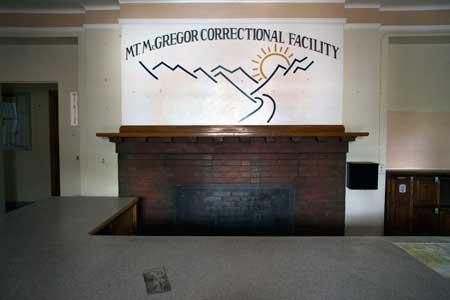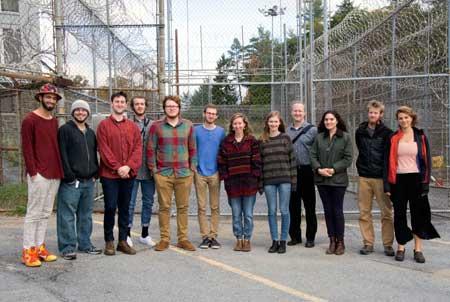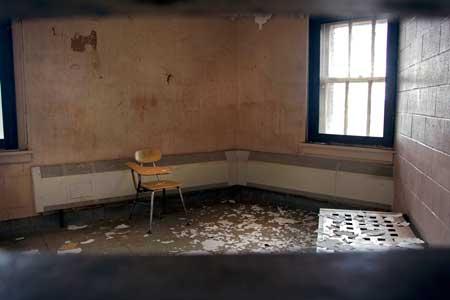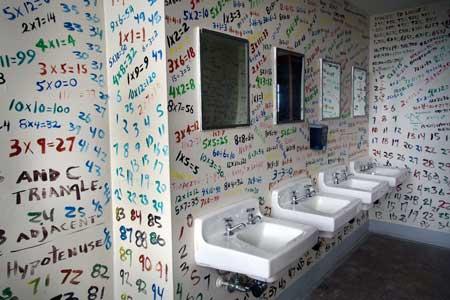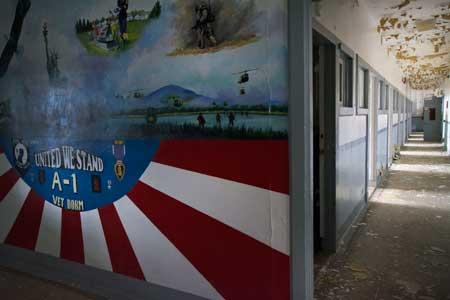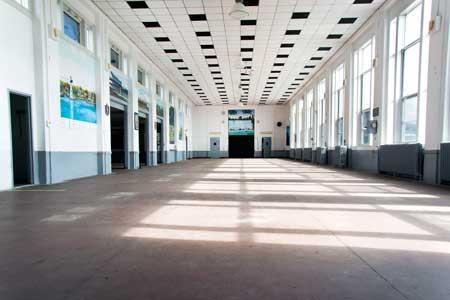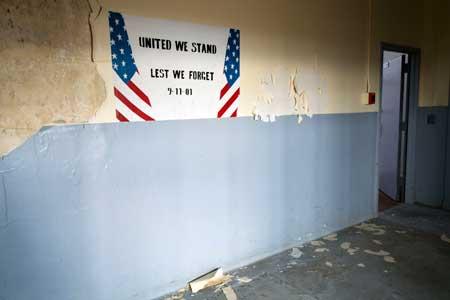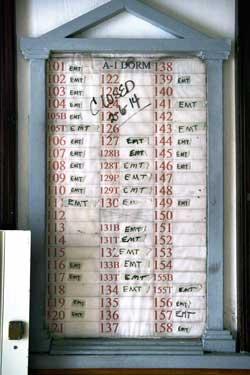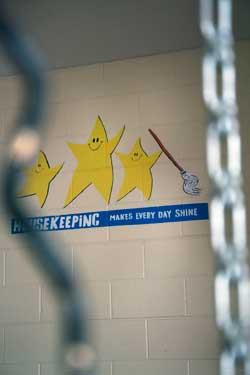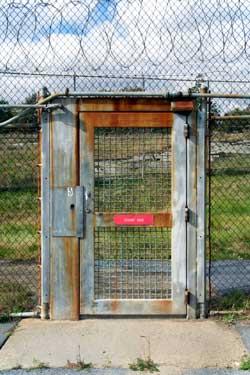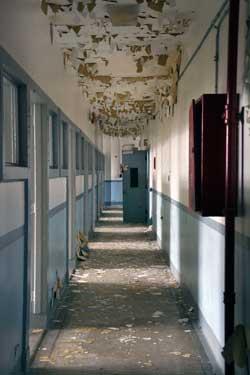On the inside
In a small interview room, two 91���� students sit across from a former prisoner.
The establishing questions are asked—name, age—and the interviewee starts haltingly,
unaccustomed to sharing thoughts and stories about his personal journey through the
American justice system. But soon the words flow, perhaps aided by the fact that someone
actually cares.
Welcome to HI 363, "Adventures in Public History: The Prison Project," taught by Eric
Morser. He says the course was designed to "focus more attention on public history
and help our students think about how to apply what they learn in the classroom to
the world beyond 91����." It's also part of an incarceration project by the , a consortium of 20 universities that works to foster new public dialogue on thorny
or deadlocked social issues.
For the HAL project, Morser's students focused on nearby Mount McGregor Correctional
Facility, which closed last year. They interviewed men who were convicted of a variety
of crimes, as well as prison staff and others. They collected images and artifacts,
toured the prison, and mapped the layout. They read widely, from Doing Oral History to Orange is the New Black. Morser says using the prison "gave us a great opportunity to talk about how public
historians conduct their research, the choices they have to make, and how they present
their findings."
One interesting story came from a poetry class taken by several prisoners. They told
students that they learned to express themselves, share ideas, and even build relationships
through their newfound language of poetry. "It's striking," reflects Morser, "how
this kind of innovative, creative educational opportunity had a real impact on the
people who were incarcerated-maybe even as much as traditional programs to reintroduce
prisoners back into society."
The students' compiled their work into a segment of a traveling exhibition to tour
all 20 of the Humanities Action Lab institutions, starting in 2016. Morser says America
seems to be "at a tipping point regarding the public attitude about incarceration.
Hopefully this exhibit will help foster the discussion."
And back on campus, "this has been some of the most exhilarating teaching that I have
ever done," Morser says. He adds, "The students were passionate, engaged, and especially
excited about sharing the stories-unlocking history-in ways they don't normally get
to." —Jon Wurtmann '78
